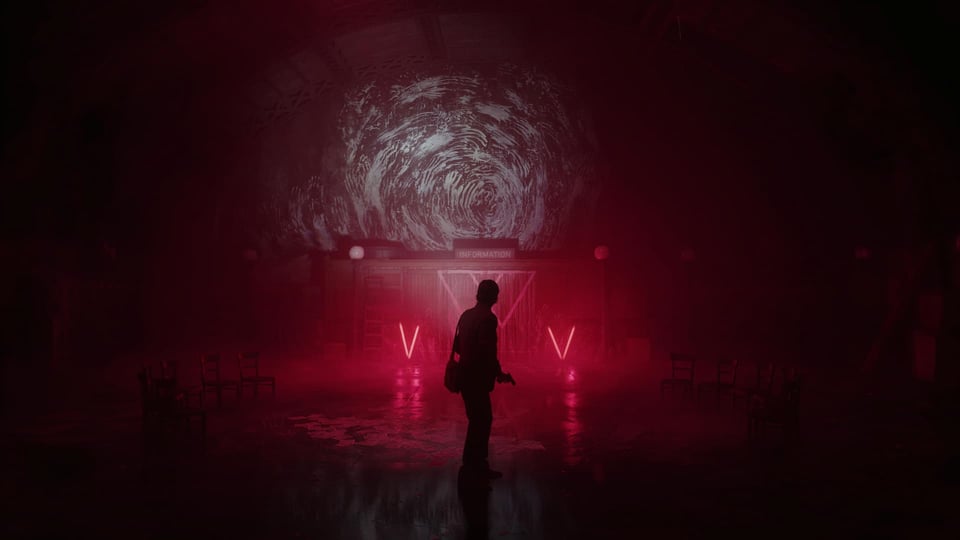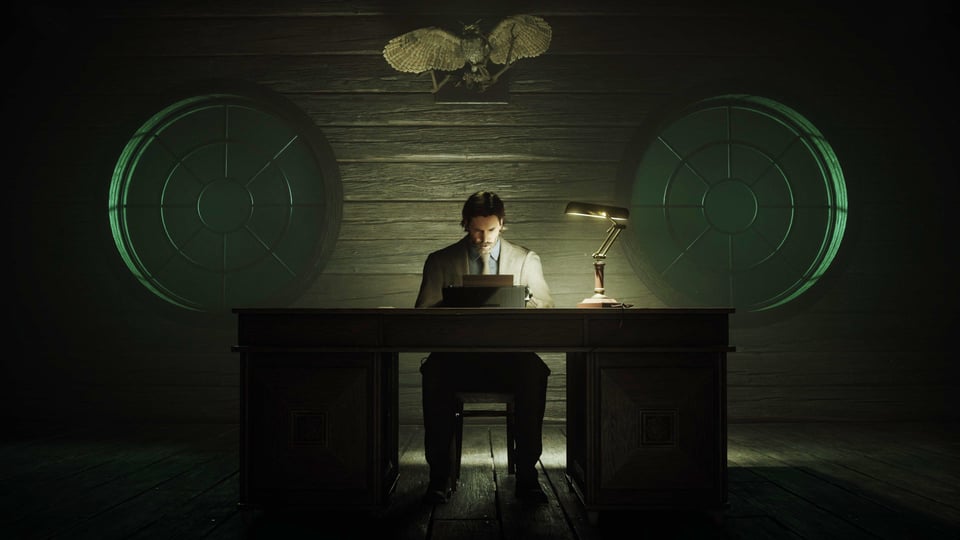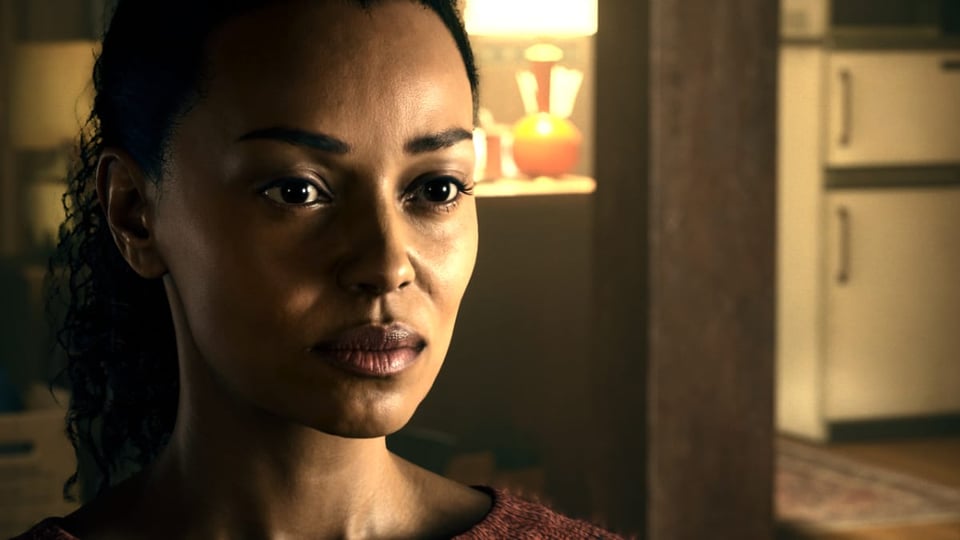Alan Wake 2 Knows Writers are Weird Little Freaks
By now I’m sure everyone is tired of think-pieces about how AAA games are washed, but the truth is that games cost so much to make and publishers have so much riding on each and every release that anything weird or gross or daring has a tendency to get focused-tested out. Companies can’t generally risk alienating their audience by releasing a game that’s like if Twin Peaks and Hannibal had a threesome with Stephen King’s Misery, and then afterward they all got high and watched Eurovision. But somehow Remedy managed it.
Alan Wake 2 is a game about writing, and writers. It’s about inhabiting the persona of “artist”, as presented by someone who understands that authors are, at the end of the day, just ego-maniacal perverts sitting in a room and talking to ourselves. There’s a lot going on in Alan Wake 2, but to make my point I need to focus on Alan’s side of it, although deuteragonist Saga Anderson also shouldn’t be forgotten.

Alan Wake is a famous writer trapped in a nightmare realm called The Dark Place, a dimension that responds and reshapes under the influence of art. He’s been there for 13 years, trying and failing to “write himself out”. He’s convinced that if he can only produce the perfect draft of his next novel, he can escape. You control Alan as he moves through the Dark Place, trying out new ideas, following plot threads, and fighting his way through hordes of shadowy silhouettes that whisper his name to him. “Alan Wake.”
“This is what being online feels like,” I commented to my dad while we played, as a horde of shadows beat me to death with pipes.
Anyone who has ever tried to write anything will find something familiar in Alan’s levels, whether it’s the unsubtle graffiti all over the city proclaiming “DON'T WRITE” or the subway signs that tell him “It’s not like you were that great of an author anyway.” Maybe it’s the hallucinatory live-action sequences of Alan being interviewed on a talk show about a book he hasn’t written yet, or the playable musical number where a chorus gives us an interpretive dance summary of the previous Alan Wake game. A world made entirely of his ego, polishing and bruising it in equal measure. For me it was the screens you find of Alan on different “loops”, spiraling into frantic, muttering frustration when none of the aspects of his story come together the way he wants them to.

Throughout his journey through the dark place, Alan faces himself in various guises. There’s the villainous Mr. Scratch, Alan’s dark alter ego and the main antagonist of all of the Alan Wake games, a deranged serial killer who desires only to escape into our world and turn it into the horrorshow from Alan’s books. There’s Alex Casey, the hard-drinking, extremely divorced protagonist of Alan’s bestselling crime series, who accompanies every mission with hard-boiled voiceover as Alan works and re-works his story. Then there’s the manic, hedonistic filmmaker Thomas Zane, another artist trapped in the dark place, who gets too close and feeds Alan club drugs, claiming the two of them have been “collaborating” on their masterpiece. It’s masturbatory, it’s kinda gay, it’s the auto-erotic literary urge brought to life, and it made me yell “YES!” like the guy from the sickos meme.
But all of this navel-gazing doesn’t do Alan any good. Every single time he gets somewhere it ends up falling apart. The ideas don’t cohere and he ends up, literally, back at the drawing board. It’s only when he teams up with Saga Anderson, an FBI agent with her own set of mysterious powers, that he gets anywhere at all. Saga isn’t anything like Alan — she’s Black, she’s a mother, she’s got a totally different set of priorities. His collaborations with Thomas Zane went nowhere because Zane was too like him (exactly like him, in fact; they’re played by the same actor) and it’s only when Alan searches out a fresh perspective that he can succeed.

I mentioned in my first newsletter that I wanted to use this column to talk about games and craft. With Alan Wake 2, the content is the craft. It’s a story about how sometimes the only way to make something worthwhile is by opening up your process. The age of the auteur is over, if it ever existed in the first place. Most likely the auteur was just an isolated madman in a dark place, hurting everyone around him in his frantic attempts at creation. This game changed the way I think about writing, and I’m eternally grateful.